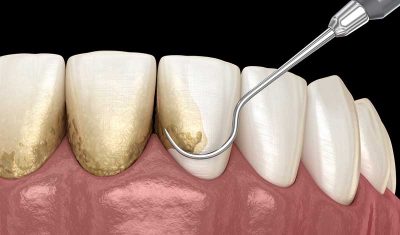
At Mcintosh Dental, our highly experienced dentists and professionals are dedicated to providing exceptional dental care and positive patient experiences in a relaxed environment. As experts in oral health, we understand the importance of educating our patients on gum disease, including the symptoms, causes, and available treatment options.
What is Gum Disease?
Gum disease, also known as periodontal disease or periodontitis, is an infection in the gums that can destroy the bone surrounding and supporting your teeth. It starts with bacterial growth in your mouth and, when left untreated, can lead to tooth loss and increase your risk of a stroke or heart attack. Gum disease is the leading cause of tooth loss in adults.
Symptoms of Gum Disease
Gum disease often progresses slowly, so many people are unaware they have it until it reaches later stages. Symptoms include:
- Red, swollen and tender gums
- Gums that bleed during and after brushing and/or flossing
- Persistent bad breath or bad taste in the mouth
- Receding gums
- Teeth that feel loose
- Developing deep pockets between teeth and gums
- Changes to your bite
Causes of Gum Disease
Poor oral hygiene is the leading cause of gum disease. Plague builds up around your teeth and gums when you don’t brush or floss regularly. Bateria in plaque produce acids that attack your tooth enamel and cause tooth decay. Over time, the bacterial toxins attack the bone and ligaments surrounding your teeth.
In addition to poor oral hygiene, hormonal changes can contribute to gum disease, particularly during pregnancy, puberty, or menopause. At these times, your gums can be more sensitive and vulnerable. Certain illnesses and health conditions, such as cancer, HIV, and diabetes, can also make you more prone to gum infection by interfering with your immune system. Some medications can also affect your teeth, gums, and saliva flow, increasing your risk of gum disease.
Gum Disease Treatment
Regular dental check-ups and hygiene appointments are essential in preventing and treating gum disease. Early detection is critical! The most effective treatment is a combination of good brushing and flossing habits at home and regular appointments with your dentist and dental hygienist. Professional teeth cleaning, performed at least twice per year, removes plaque and tartar build-up from above and below the gum line.
If gum disease has progressed beyond the early stages, a nonsurgical treatment called scaling and root planing can be performed under local anesthetic. This involves scraping away plaque and tartar both above and below the gum line and smoothing rough spots on the tooth root.
In later stages, however, gum disease treatment may require oral surgery. Flap surgery, also known as pocket reduction surgery, involves lifting the gums back so tartar can be removed. Then the gums are replaced snugly around the tooth to reduce pockets and provide better protection. Bone grafts can be surgically performed to replace bone destroyed by gum disease, and soft tissue grafts can be done to reinforce or fill in receding gums.
If you have any gum disease concerns, our Mcintosh Dental team is here to help. We can conduct an assessment and recommend treatment options to meet your specific needs. Don’t let gum disease progress and negatively impact your oral health.
Book an appointment with us today and take the first step towards a healthier smile.
Please contact us if you have any concerns regarding gum disease. We can conduct an assessment and recommend treatment options for your needs.
